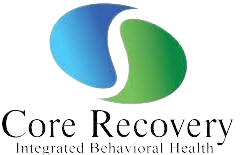Watching a loved one battle an eating disorder can be heart-wrenching and overwhelming. Whether it’s anorexia nervosa, bulimia nervosa, or binge-eating disorder, the impact reverberates through every aspect of their life, as well as those who care about them. In times like these, knowing how to provide support can make a world of difference. In this guide, we’ll delve into strategies and insights aimed at offering meaningful assistance to someone facing the challenges of an eating disorder. From understanding the intricacies of these disorders to fostering open communication and seeking professional help, each step plays a crucial role in the recovery journey. Together, let’s explore compassionate approaches to empower your loved one and foster a supportive environment conducive to healing and growth.
Seeking Professional Help: The Role of Therapy and Treatment in Eating Disorder Recovery
Seeking professional help is a crucial step in the journey of eating disorder recovery. While the support of friends and family is invaluable, trained professionals offer specialized guidance and expertise to address the complex psychological and physical aspects of the disorder. In this article, we will explore the role of therapy and treatment in eating disorder recovery, highlighting the various options available and their importance in promoting lasting healing and well-being.
Cognitive-Behavioral Therapy (CBT)
CBT is one of the most widely used therapeutic approaches for eating disorder treatment. It focuses on identifying and challenging distorted thoughts and beliefs about food, weight, and body image. Through CBT, individuals learn healthier coping strategies and develop skills to manage triggers and cravings.
Dialectical Behavior Therapy (DBT)
DBT combines cognitive-behavioral techniques with mindfulness practices to help individuals regulate their emotions and improve interpersonal relationships. It is particularly effective for individuals struggling with binge eating disorder or bulimia nervosa, as it emphasizes emotion regulation and distress tolerance skills.
Family-Based Treatment (FBT)
FBT, also known as the Maudsley approach, involves the active involvement of family members in the treatment process. It aims to empower parents to take an active role in supporting their child’s recovery, restoring healthy eating patterns, and addressing family dynamics that may contribute to the disorder.
Interpersonal Psychotherapy (IPT)
IPT focuses on improving interpersonal relationships and addressing social difficulties that may exacerbate eating disorder symptoms. By exploring the connection between the individual’s relationships and their eating behaviors, IPT helps foster healthier communication patterns and social support networks.
Acceptance and Commitment Therapy (ACT)
ACT encourages individuals to accept their thoughts and feelings without judgment while committing to behaviors aligned with their values and goals. It helps individuals develop psychological flexibility and resilience, enabling them to navigate challenges and setbacks in their recovery journey.
Creating a Supportive Environment: How to Help Your Loved One Recover from an Eating Disorder
Support from family and friends is crucial for individuals recovering from an eating disorder. As a loved one, you play a significant role in creating a supportive environment that fosters healing, understanding, and acceptance. In this article, we’ll explore practical strategies to help your loved one recover from an eating disorder by creating a nurturing and empathetic support system.
Educate Yourself
Start by educating yourself about eating disorders, including their causes, symptoms, and treatment options. Understanding the complexities of the disorder will help you offer informed support and empathy to your loved one without judgment or stigma.
Foster Open Communication
Create a safe and non-judgmental space for your loved one to express their thoughts, feelings, and concerns about their eating disorder. Encourage open communication, active listening, and empathy, allowing them to share their struggles and victories without fear of criticism or shame.
Avoid Food- and Body-Shaming
Refrain from making comments about your loved one’s appearance, weight, or eating habits, as these can trigger feelings of shame, guilt, and inadequacy. Instead, focus on promoting body positivity, self-acceptance, and healthy behaviors, emphasizing the importance of overall well-being over appearance.
Encourage Professional Help
Encourage your loved one to seek professional help from a therapist, counselor, or eating disorder specialist who can provide specialized treatment and support. Offer to accompany them to appointments, assist with research, and advocate for their needs within the healthcare system.
Collaborate on Meal Planning
Collaborate with your loved one on meal planning and preparation, emphasizing flexibility, variety, and balance. Avoid placing pressure or restrictions on their food choices, and instead focus on creating a supportive and relaxed atmosphere around meals.
Self-Care for Caregivers: Nurturing Yourself While Supporting a Loved One with an Eating Disorder
Supporting a loved one with an eating disorder can be emotionally and physically draining for caregivers. While your focus may naturally be on providing support to your loved one, it’s essential to prioritize your own well-being to maintain the strength and resilience needed for effective caregiving. In this article, we’ll explore key strategies for practicing self-care as a caregiver of someone with an eating disorder.
- Set Boundaries: Establish clear boundaries to protect your own physical, emotional, and mental health. Communicate your needs and limitations to your loved one and others involved in their care.
- Practice Mindfulness: Incorporate mindfulness practices into your daily routine to reduce stress and cultivate present moment awareness. Whether through meditation, deep breathing exercises, or mindful activities, find moments of calm amidst the challenges of caregiving.
- Prioritize Your Needs: Make time for activities and hobbies that bring you joy and fulfillment, even amidst your caregiving responsibilities. Nurturing your own interests and well-being is essential for maintaining balance and perspective.
- Seek Support: Don’t hesitate to reach out for support from friends, family members, or support groups for caregivers. Sharing your experiences and emotions with others who understand can provide validation, encouragement, and practical advice.
Practicing self-care as a caregiver of someone with an eating disorder is essential for maintaining your own well-being and resilience.
Conclusion
Core Recovery in Phoenix, Arizona, USA, we understand the complexities of supporting a loved one with an eating disorder. Our dedication to providing compassionate care and evidence-based treatments reflects our commitment to aiding individuals on their journey towards recovery. By offering specialized support and resources, including our helpline at 602-926-7729, we strive to empower both individuals and their families with the tools necessary to navigate and overcome the challenges of this disorder, fostering hope and healing for a brighter future.




 In CA By O360®
In CA By O360®







